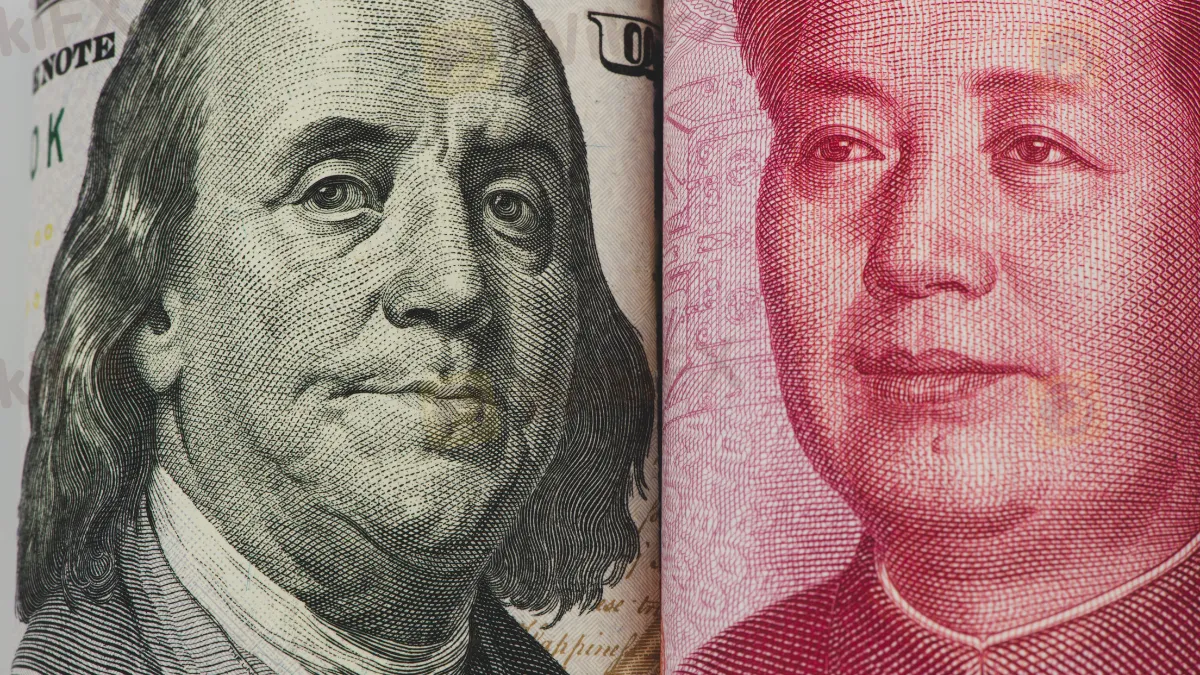简体中文
繁體中文
English
Pусский
日本語
ภาษาไทย
Tiếng Việt
Bahasa Indonesia
Español
हिन्दी
Filippiiniläinen
Français
Deutsch
Português
Türkçe
한국어
العربية
China's New Measures Aim to Stabilize Yuan Against Dollar
Abstract:China's new measures to stabilize the Yuan against the US dollar aim to counter US monetary policy uncertainties and strengthen the currency in the second half of the year.

According to experts, China is planning to adopt fresh steps to stabilize the yuan versus the US dollar, addressing persistent concerns about US monetary policy and strengthening the Chinese currency in the second half of the year.
This forecast follows the yuan's recent slide to its lowest level versus the US dollar since November, which was recorded in both onshore and offshore trade on Wednesday.
The offshore yuan fell to 7.3115 versus the US dollar in the morning, breaching the crucial 7.31 level, while the onshore yuan finished at 7.2734 around 16:30, down 20 basis points from the previous day.
The yuan has been under pressure since early June, owing to worries that the US Federal Reserve may postpone interest rate decreases. The dollar index increased 1.16 percent in June to 105.84, before falling slightly to 105.63 on Wednesday afternoon.
Liu Chunsheng, an associate professor at the Central University of Finance and Economics School of International Trade and Economics, believes the yuan's recent weakening is due in part to uncertainty about China's internal economic recovery.
Looking forward, Liu expects the yuan to range between 7.1 and 7.3 percent versus the dollar, with the Fed perhaps keeping key interest rates as high as 5.25 to 5.5 percent for the rest of the year.

On Tuesday, Federal Reserve Chair Jerome Powell said that, although recent statistics indicate that US inflation is on the decline, the Fed needs more proof before contemplating rate decreases.
To preserve yuan stability, Liu believes officials could cut the foreign currency reserve requirement ratio, expanding onshore dollar liquidity and enhancing expectation management.
He also underlined the significance of more aggressive fiscal and monetary policy in maintaining economic momentum. “Significant fluctuations in economic growth could impact not only the yuan but also the stock and bond markets,” according to Liu.
The People's Bank of China (PBOC) has reaffirmed its commitment to preserving the yuan's overall stability via comprehensive measures while resolutely guarding against the possibility of exchange rate overshoot.
According to Jerry Chen, an analyst at GAIN Capital, the PBOC's move on Monday to borrow Chinese government bonds from main dealers indicates its policy purpose to stabilize the yuan. Selling these bonds may assist avoid a sharp drop in Chinese government bond rates.
“We anticipate the central bank will continue to manage currency challenges in a controlled manner, indicating exchange rate stability via the yuan central parity rate. ”It may also guide market expectations by issuing offshore central bank bills, Chen said.
The Chinese yuan has held up well versus a basket of foreign currencies. The CFETS RMB Index, which analyzes the yuan's exchange rate against a basket of currencies from China's trading partners, increased to 100.04 on Friday from 99.79 at the end of May.
You may also access the daily news here.

Disclaimer:
The views in this article only represent the author's personal views, and do not constitute investment advice on this platform. This platform does not guarantee the accuracy, completeness and timeliness of the information in the article, and will not be liable for any loss caused by the use of or reliance on the information in the article.
Read more

What Happens If You Trade on Illegal Forex Platforms in India?
There are many illegal platforms that offer financial services to clients. These scammers hide the risks involved because their main goal is to steal your money. That’s why it’s so important to understand the dangers of trading on illegal forex platforms

Exposing Trade Capital Limited - Siphoning Millions, Restricting Withdrawals, Charging Extra Fees
Trade Capital Limited is in the news for conducting bad practices as a forex broker. Check out the unethical practices employed by it to scam investors in this article.

US Federal Reserve May Cut Interest Rates in September, Says Goldman Sachs
US Federal Reserve Chair Jerome Powell may slash the policy rate in September 2025, according to research economists at Goldman Sachs. Read this to learn more.

5 Serious Warnings About Mirrox! You Can’t Afford to Ignore
Pay Attention! This is a serious warning you shouldn't ignore. Check out this article and know the 5 red flags about the Mirrox that every trader must be aware of.
WikiFX Broker
Latest News
America's Deficit Reckoning: How the U.S. debt spiral could spark a crisis
Treasury yields hold steady as Trump extends tariff deadline
Gold Prices to Fluctuate This Week Amid July 9 Tariff Deadline, Fed Policy
FCA clarifies expectations on bullying, harassment and violence to deepen trust in financial service
XS.com Expands Global Reach with Landmark Kuwait Launch
10 Unlicensed Brokers Exposed – Check Now to Stay Safe!
Exposed: Ibell Markets - A Scam Broker That Does Not Allow Withdrawals
Asia-Pacific markets mostly rise as investors assess Trump's steep tariffs
MT4 vs MT5: A comprehensive comparison in terms of functionality
Top Forex Trading Strategies for the London Session
Currency Calculator


